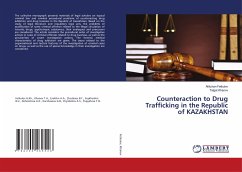
Redefining Access to Justice in the Democratic Republic of Congo
Access to the Judge in the jurisdiction of the Court of Appeal of North Kivu, between myth and reality
Versandkostenfrei!
Versandfertig in 6-10 Tagen
27,99 €
inkl. MwSt.

PAYBACK Punkte
14 °P sammeln!
From an institutional point of view, the principle of access to justice refers to access to courts and tribunals, from the bottom to the top, and therefore to the judge; to the judge from the lowest level of the jurisdictional pyramid to the top; in other words, to the judge of the court of peace to the judge of the court of cassation. From the point of view of the finality of justice, it is articulated around access to rights. Thus, justice as an institution is a justice-medium, and justice as rights, a justice-fin, understood by this as an end of justice-medium. Justice-as-mean highlights an...
From an institutional point of view, the principle of access to justice refers to access to courts and tribunals, from the bottom to the top, and therefore to the judge; to the judge from the lowest level of the jurisdictional pyramid to the top; in other words, to the judge of the court of peace to the judge of the court of cassation. From the point of view of the finality of justice, it is articulated around access to rights. Thus, justice as an institution is a justice-medium, and justice as rights, a justice-fin, understood by this as an end of justice-medium. Justice-as-mean highlights another axial rule, which is justice of proximity. This last one is a fundamental pillar and the skein of a fair trial. Access to justice is the cradle of the restoration of any violated right. In its vigorous manifestations, it ensures the effectiveness of the other principles that contribute to a fair trial. Properly respected, both upstream and downstream, it is the guarantee of any compensation for the prejudice suffered, and by extension of legal and judicial security.












